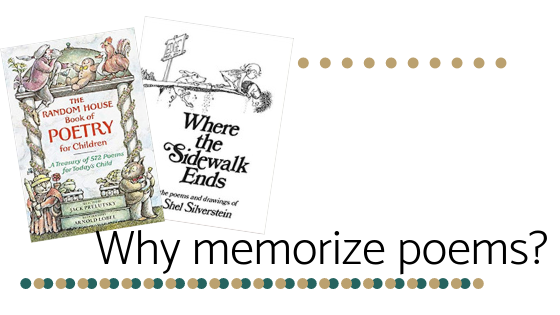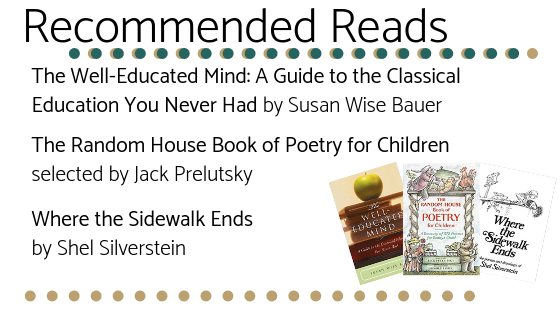“What do you mean, by heart?” Sasha, a grade four student, raises her eyebrows almost to her hairline.
I hand her a cute 8-line poem about robins splashing in a bird bath. “Memorize it by heart, so you can read it from memory. It’s like singing a song, minus the music.”
“Why?”
Resistance and bewilderment are common in our classes when I introduce weekly poem recitation to my curriculum. Students look at me like I am a pedagogical dinosaur who hatched out of a very dense egg and missed the memo on how parents and educators were no longer expected to challenge children intellectually, only to make them feel special and pay for data.
Luckily, it never takes long to convince them, since the benefits of memorizing poems have been recognized by most cultures, many of which preserved their literary traditions by training children to do just that since the beginning of written history. Educators, developmental psychologists and parents recognize that memory, school grades and creativity improve quickly once memorizing poems becomes a weekly habit.

- Reciting poems in front of an audience builds confidence. It is an excellent opportunity to practice public speaking without the burden of preparing a speech. Children get a chance to learn cadence, use of gestures, facial expressions, voice, and pauses to connect with their audience on an emotional level.
- For parents and educators it’s an opportunity to talk to young kids about abstract issues and emotion. Once the laughter accompanying Jack Prelutsky’s poem “Be Glad Your Nose is on Your Face” subsides, my grade four students write their own poems about appreciating all the wonderful, simple things we often neglect to notice. The mature topics they select make me beam with pride. With no hesitation they rhyme clean air, healthcare, safe schools and traffic rules.
- Poetry builds vocabulary. Poems spark images and offer creative ways of expressing thoughts. Regular practice of memorizing poems manifests into better writing much faster than other vocabulary enrichment strategies. I usually notice significant improvement after the first few weekly poem assignments. Exposure to new words or new uses of familiar words provides students with a ready arsenal of phrases and patterns to use in their writing.
- Regular efforts to memorize rhythmic patterns improve neuroplasticity, the brain’s ability to regenerate and reorganize itself. Researchers have found that regular memorization of poetry has a beneficial impact on the ability to form new neural connections at any age. In childhood it helps improve memory. It also develops new schemas, especially when it comes to connecting words to images to emotions.
- Learning poems improves performance in all subjects by making it easier for kids to memorize material taught in class not only by improving memory, but by offering an alternative to organizing information. Linguists have calculated that we memorize rhythmic patterns 15 times faster. Rhyming makes complicated information easy to remember. Just think of the spelling rhyme, “I before E except after C, or when it sounds like A as in neighbour and weigh.” A troubled speller myself, I can attest that this rhyme proved more effective than weeks of spelling exercises.
- Writing becomes much easier as learning poems by heart improves syntax and grammar. Susan Wise Bauer, author of The Well-Educated Mind: A Guide to the Classical Education You Never Had, explains that memorization expands a child’s linguistic inventory by filling it with new complex patterns. Not only that, but poetry encourages creative writing. When children recite poems they have memorized, they feel more connected to language and more interested in exploring and experimenting with words.
My personal favorite anthologies for elementary and middle school students are The Random House Book of Poetry for Children selected by Jack Prelutsky, and Where the Sidewalk Ends by Shel Silverstein. These and other collections can help us do what many cultures have done before-challenge and enrich our children’s own memory, not just the memory on their devices.

Thank you for reading. Join us for a trial class. It is our pleasure to help students of all ages develop great writing skills.
Maria Gurevich
